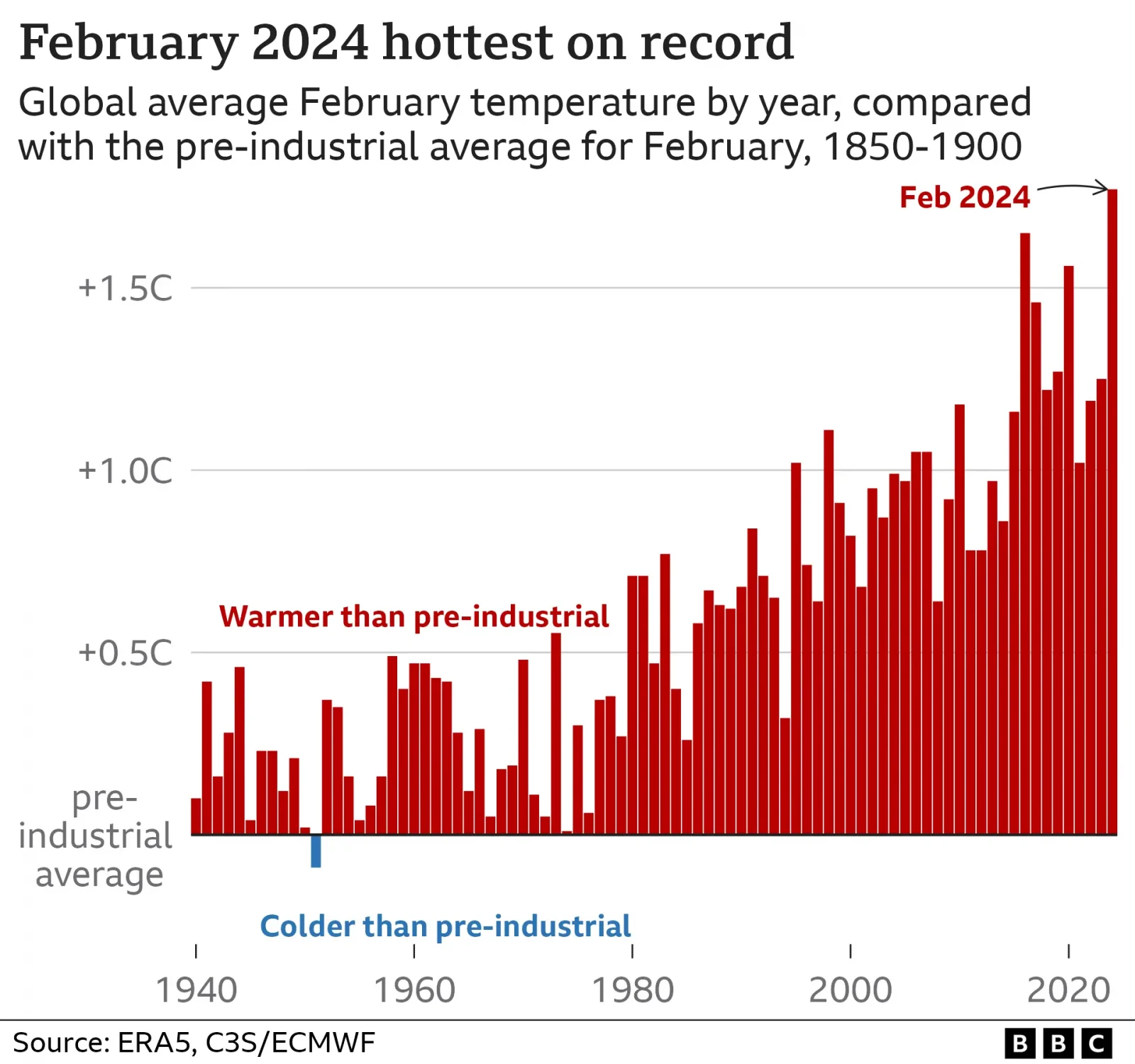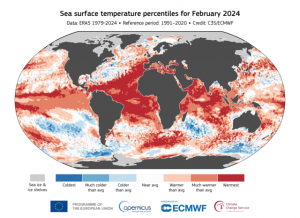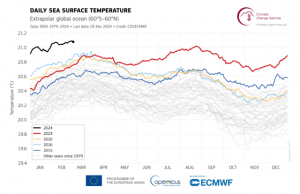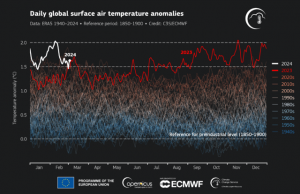
February 2024 Hottest on Global Records, Sets New Temperature Highs

February 2024 marked the hottest February on record globally, with soaring temperatures recorded by Copernicus, the EU’s climate monitoring service. The average global surface air temperature was 13.54 degrees Celsius, surpassing pre-industrial levels by 1.77 degrees Celsius.

This extends a streak of nine consecutive months setting new records for warmth. Record-high temperatures occurred in the first two weeks of February, with daily averages reaching two degrees Celsius above the pre-industrial average. Ocean temperatures also peaked, hitting 21.06 degrees Celsius, the highest ever recorded.

COPERNICUS CLIMATE CHANGE SERVICE/ECMWF
These warming oceans exacerbate climate change by melting sea ice and contributing to rising sea levels. Climate scientists warn of critical thresholds being exceeded, including the 1.5-degree Celsius mark. The recent records coincide with an ongoing El Niño event, further impacting global climate patterns.

C3S/ECMWF
Despite the event’s natural occurrence, human activities intensify its effects. Urgent action to stabilise greenhouse gas concentrations is emphasised to mitigate the impacts of climate change.
Read: After Listing his Power Firm, Tony Elumelu Advices FG to Privatise Electricity Transmission
About The Author
Related Articles
Peter Obi Joins Protest at National Assembly Over Election Reforms
Former presidential candidate Peter Obi joined protesters at the National Assembly in...
ByWest Africa WeeklyFebruary 9, 2026Manufacturers record N1.8 trillion in unsold goods
Nigeria’s manufacturing sector is facing a deepening crisis as the value of...
ByWest Africa WeeklyFebruary 9, 2026Germany, England, Nigeria Set for Beach Soccer Event in Ghana
Ghana is preparing to host an international beach soccer festival that will...
ByWest Africa WeeklyFebruary 9, 2026South East Residents Get Relief as Sit at Home Is Cancelled
Nnamdi Kanu has announced the cancellation of the long-running sit-at-home order that...
ByWest Africa WeeklyFebruary 9, 2026











